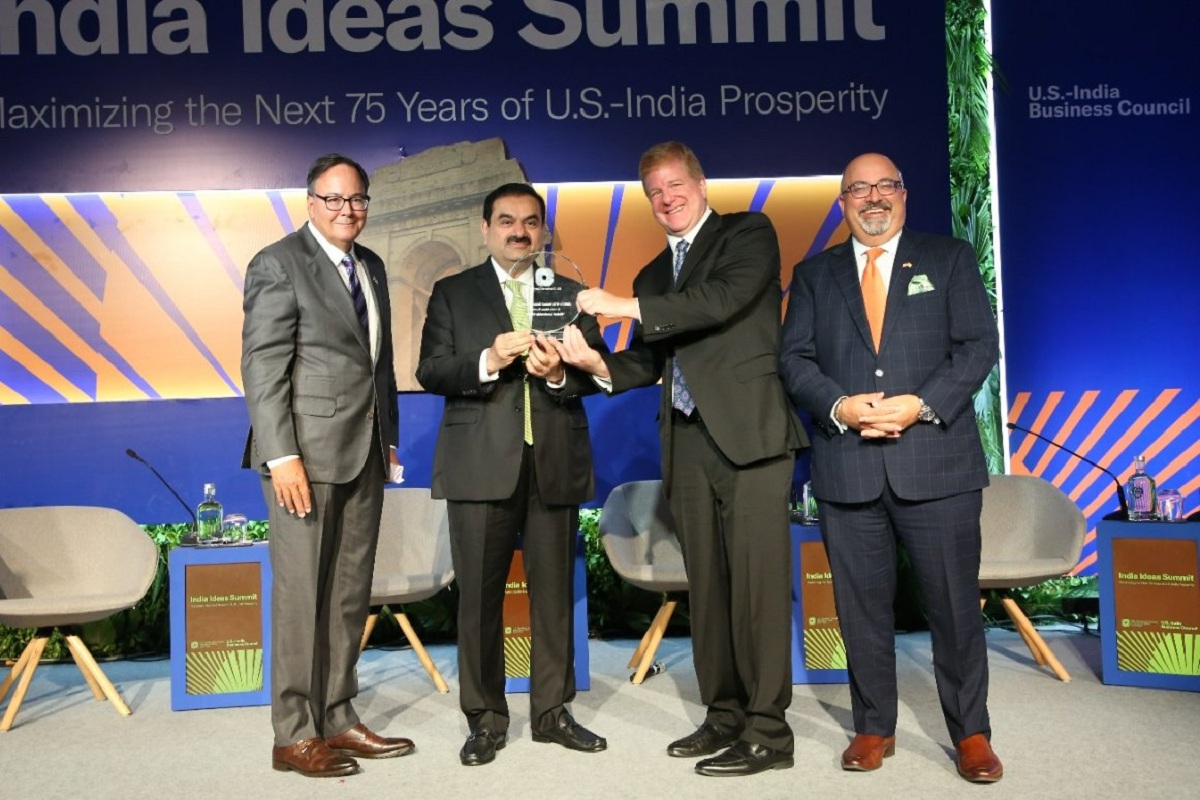Billionaire businessman and Adani Group chief Gautam Adani was honoured with the USIBC Global Leadership award on Wednesday for his substantial contributions to enhancing the India-US partnership.
The award was conferred at the national capital during the ongoing India Ideas Summit organised by US-India Business Council. This global leadership award aiming to acknowledge corporate executives started back in 2007.
Advertisement
In his address at the event right after receiving the award, he said the governments have done their part and it was now the job of businesses to find a way to collaborate between the two nations.
“In terms of climate change, there has been a lot of talk about developed nations supporting developing nations. But far more needs to be done urgently. With the signing of the US Climate Bill into law, both nations must find a mechanism to benefit from this,” Adani said.
Further, he reiterated that his conglomerate has already committed USD 70 billion for green energy.
“It will see us building 3 Giga factories in India, leading to one of the world’s most integrated wind energy value chains,” he said.
Explaining the three factories, Adani said it would extend from polysilicon to solar modules, manufacturing of wind turbines and manufacturing hydrogen electrolysers, which as a result is expected to generate another 45 GW of renewable energy in addition to the existing 20 GW capacity and 3 million tonnes of hydrogen.
“This value chain will be fully indigenous and aligned with the geopolitical needs of our nation. I also believe that we can further accelerate our goals with support from companies in the US that are willing to work with us. Both of us stand to benefit,” Gautam Adani added.
For the record, at the COP26 summit at Glasgow in late 2021, Indian Prime Minister Narendra Modi committed to an ambitious five-part “Panchamrit” pledge, including reaching 500 GW of non-fossil electricity capacity, to generate half of all energy requirements from renewables, to reduce emissions by 1 billion tons by 2030.
India also aims to reduce the emissions intensity of GDP by 45 per cent. Finally, India commits to net-zero emissions by 2070.
